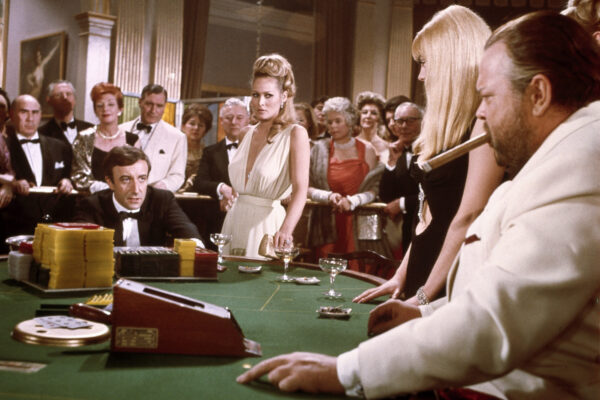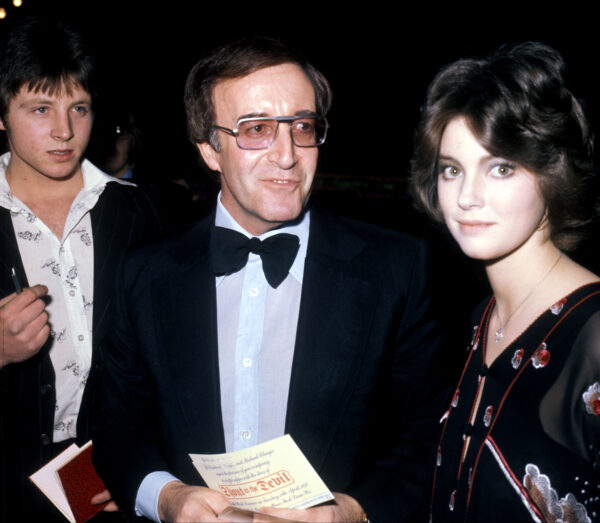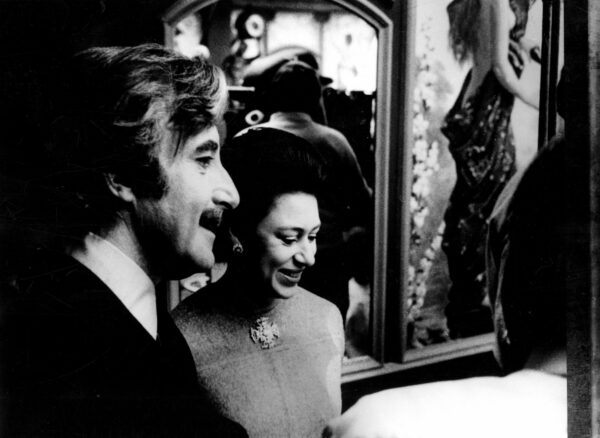The Fan that Hit the Sh*t: The Day I Punched Peter Sellers
John McEntee talks to film director Joe McGrath about the life and troubled times of the late comic actor, Peter Sellers

By John McEntee
August 8 2023

2025 will be the centenary of the birth of film star Peter Sellers. The occasion will be marked though hardly celebrated. Sellers, who died in a London hotel of a massive heart attack aged 54 in 1980, was a monster. Cruel and nasty to his three children, unpleasant and domineering to his three wives he was also arrogant and abusive to fellow actors and film crew. Yet, as we celebrate the 60th anniversary of the first Pink Panther film – the role of Inspector Clouseau was arguably his most famous – Sellers is recognised as a comic genius whose potential was never fulfilled.
“Peter was sure he was dying,” says his friend, film director, Joe McGrath. “It was May 1980. We were filming a Barclaycard advert in Dublin he had returned to his suite at the Shelbourne Hotel where he suddenly felt poorly. Prone to heart attacks and wearing a pacemaker he was convinced his number was up.”

McGrath, who was directing the commercials, was in an adjoining suite at the luxury hotel. “I phoned reception and said ‘Mr Sellers is having a problem with his heart. Can you send up a doctor?’ Ten minutes later there was a knock on the door. I am wearing dark glasses and a dressing gown so I go to the door and this guy is standing there with a medicine bag and he says to me in a Dublin accent: ‘Mr Sellers you look terrible you should be in bed’. Sellers was listening from the bedroom and shouted: “That’s all I fuckin’ need an Irish doctor!”
Less than three months later, Sellers was dead on the floor of another hotel, this time the Dorchester on Park Lane. Poignantly at the urging of his friends, he had made an appointment to undergo an angiogram at the Cedars-Sinai Medical Centre in Los Angeles five days after his death.
But the writing was on the wall years before the fatal attack. Sixteen years before, married to Britt Ekland and preparing for sex he suffered eight heart attacks in three hours after inhaling amyl nitrite (poppers) in his search for “the ultimate orgasm”.
And at the time of his demise, despite his estrangement from third wife, the 26-year-old Lynn Frederick, who he was trying to write out of his will, inherited almost his entire estate worth an estimated £4.5 million (£20.5 million in today’s money). His children received £800 each. Seller’s friend, the comedian and fellow Goon show actor, Spike Milligan appealed on behalf of the three children, but she refused to increase the amount.
And when she died in 1994 from alcoholism at just 40, Sellers’ money went to her daughter Carrie Unger. According to McGrath she is a very rich woman. “Even Casino Royale the 1968 Bond movie spoof, which was deemed a flop, eventually made more than $120 million and she still collects on the royalties,” says McGrath, who directed the film until he was fired by Sellers, who had negotiated £1 million (a massive fee at the time), a white Bentley and an unprecedented 3% of the film’s gross for signing with Columbia Pictures to make the movie, which eventually cost $12 million, the equivalent of $200 million in today’s money.
Things first started to go wrong for Casino Royale when Princess Margaret accepted Seller’s invitation to lunch on set at Shepperton Studios in the late winter of 1967. McGrath, Charlie Feldman, then the most powerful producer in the world, were invited along with stars Orson Welles and Ursula Andress.
McGrath picks up the story: “When Margaret arrived, Peter pretended to be a herald, announcing, ‘My Lords ladies and gentlemen, SHE has arrived dada da da dada’. Princess Margaret came in, curtsied to us; we bowed and then she walked right past Peter straight up to Welles. ‘Hello Orson. I haven’t seen you for days!’ That absolutely killed Peter. She sat between the two of them and spent the whole time talking to Orson.”
Sellers had specifically requested that Welles play the villain in the film but after that he refused to talk to the man who made Citizen Kane. “He was very insecure,” explains McGrath. “Orson was quite a presence. When you met Orson you met Orson. But he was great fun; very, very likeable and the crew loved him. Peter took exception to that and the Princess Margaret incident was the last straw.

“The day after the infamous lunch Peter asked to speak to me and we walked to an adjoining set. That’s when we had a terrible falling out over Orson.
“He told me he would refuse to appear in the same shot as Orson. ‘You’re Peter Sellers; you’re a star,’ I said. He replied: ‘Yes but he is Orson Welles.’ I reminded him that he had asked for Orson and then told him, ‘this is ridiculous. You can’t get paid this enormous amount of money; ask for Orson Welles and then refuse to appear with him. Peter you are behaving like a spoilt child.’ He then punched me in the face and I hit him back in the face.
“Afterwards, I met Peter Cook who said to me. ‘I hear you and Sellers had a punch up. I think this is the first instance ever of the fan hitting the shit.’ Isn’t that wonderful?”
Casino Royale consumed five directors, including McGrath and made a laughing stock of not only the career of Sellers but those co-stars Orson Welles, Ursula Andress, David Niven, Jean Paul Belmondo and Wiliam Holden. The heaving, overproduced extravaganza of jumbo-sized tastelessness and waste also cost Feldman his life. The producer died three months after the shoot from stress-related cancer.
But while, Sellers appears in only about 30 minutes of footage he did manage to secure a new wardrobe from bespoke London tailor Douglas Hayward, ordering 45 suits as ‘costume changes’. When Hayward invoiced the film company it refused to pay. When he complained to Sellers, whom he considered a friend, the star snapped: ‘That’ll teach you never to make anything without a contract.’
Less than a year after his falling out with Sellers, McGrath received a fulsome apology. In fact Glasgow born Joe has the unique distinction of being the only person to whom Sellers ever apologised.
“It was a was a death bed promise,” McGrath explains. “When he had his heart attack in Dublin, three months before he died, and was going into Intensive Care he said, ‘Joe do you remember after all that trouble with Casino Royale when I wrote you a letter of apology? I’ve never apologized to anybody in my life [and I’ve certainly] never written a letter of apology to anybody, ever. Please promise me you’ll never print it.’ I’m keeping my promise I’m not printing it, but Peter never said don’t tell anyone.”
John McEntee is the Executive Diary Editor at the Daily Mail
